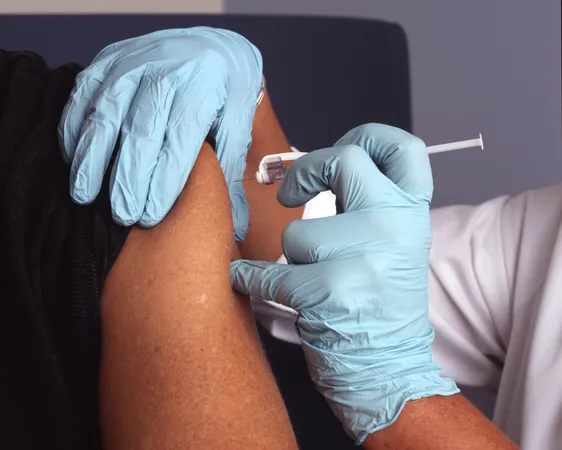
Urgent Call for Culturally-Centric Strategies to Boost Hepatitis A Vaccination in LGBTQ+ Communities
2025-04-14
Author: John Tan
A Rising Concern: Hepatitis A in LGBTQ+ Populations
The highly contagious and vaccine-preventable hepatitis A virus is raising alarm bells as recent outbreaks are particularly affecting men who have sex with men. A groundbreaking study from the Rutgers School of Public Health highlights a critical disparity in vaccination rates within this community, especially among racial and ethnic minorities.
Medical Mistrust: A Barrier to Vaccination
Published in the International Journal of STD & AIDS, this study is pioneering in its exploration of how vaccine uptake relates to medical mistrust among men who identify as gay, bisexual, or other sexual orientations. While most individuals can recover completely from hepatitis A, the virus wreaks havoc on liver cells and can degrade liver functionality.
The Stark Reality of Vaccination Rates
Despite guidelines from the Centers for Disease Control and Prevention (CDC) advocating for routine hepatitis A vaccinations for high-risk groups, the study found a startling statistic: only 60% of the 222 men surveyed were fully vaccinated. Discrepancies in vaccination rates were evident across age, race, ethnicity, and even employment status.
Understanding the Roots of Hesitance
The researchers unearthed troubling insights into why many men in the study opted against vaccination. A prevalent theme among participants was the belief that the vaccine was unnecessary, compounded by a lack of awareness regarding its availability. Notably, Black, Hispanic, and Latin individuals displayed significantly higher levels of medical mistrust surrounding the vaccine.
A Call to Action for Targeted Interventions
"Despite public health recommendations, there remains a noticeable gap in hepatitis A vaccination among men who have sex with men, particularly among Black and multiracial individuals," stated Tiffany Guo, the study's lead author and a doctoral student at Rutgers.
Kristen Krause, assistant professor at Rutgers and deputy director of the Center for Health, Identity, Behavior and Prevention Studies, emphasized the urgency of implementing targeted intervention strategies. These should focus on both increasing vaccine access and addressing deep-seated medical mistrust.
Part of a Bigger Picture
This research is an integral part of a larger initiative known as the QVax study, which investigates vaccine uptake across various preventable diseases, including COVID-19, human papillomavirus, and more within LGBTQ+ populations in New Jersey and New York. The disparities observed signal broader systemic healthcare issues concerning access and trust that need immediate attention.
 Brasil (PT)
Brasil (PT)
 Canada (EN)
Canada (EN)
 Chile (ES)
Chile (ES)
 Česko (CS)
Česko (CS)
 대한민국 (KO)
대한민국 (KO)
 España (ES)
España (ES)
 France (FR)
France (FR)
 Hong Kong (EN)
Hong Kong (EN)
 Italia (IT)
Italia (IT)
 日本 (JA)
日本 (JA)
 Magyarország (HU)
Magyarország (HU)
 Norge (NO)
Norge (NO)
 Polska (PL)
Polska (PL)
 Schweiz (DE)
Schweiz (DE)
 Singapore (EN)
Singapore (EN)
 Sverige (SV)
Sverige (SV)
 Suomi (FI)
Suomi (FI)
 Türkiye (TR)
Türkiye (TR)
 الإمارات العربية المتحدة (AR)
الإمارات العربية المتحدة (AR)